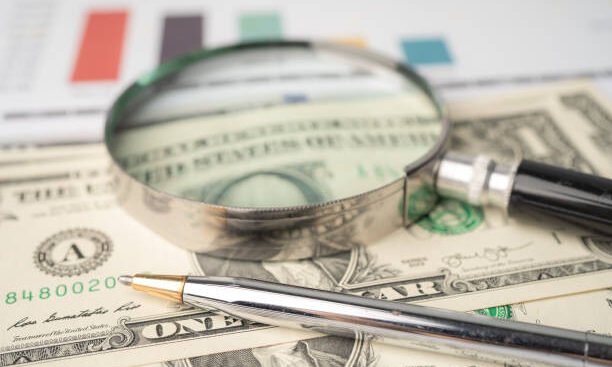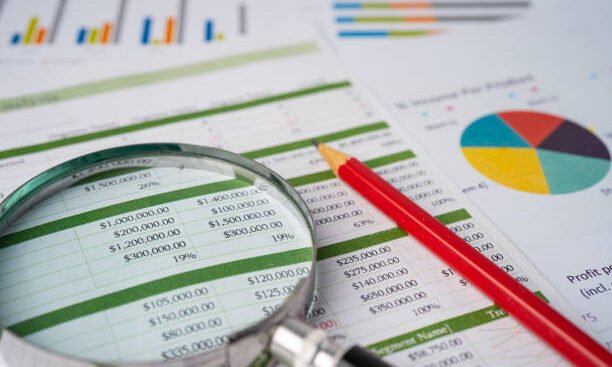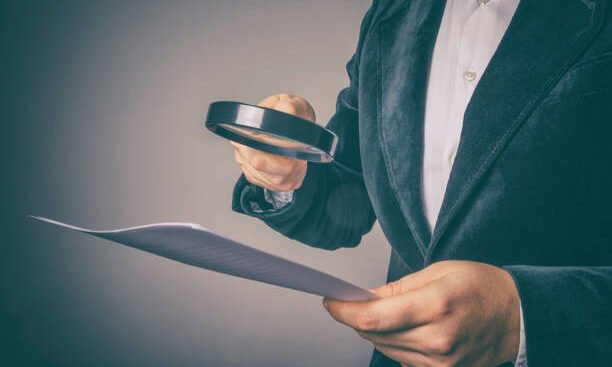When it comes to managing finances, especially in businesses and large organizations, fraud is a significant concern that can lead to severe financial losses, reputation damage, and even legal consequences. In today’s world, financial crimes, especially fraud, have become more sophisticated, making it essential for businesses to implement robust fraud detection and prevention strategies. One of the most powerful tools at your disposal in combating fraud is forensic accounting auditing.
Forensic accounting audits are specialized audits designed to detect and prevent financial fraud, irregularities, and other financial discrepancies. In this comprehensive blog, we’ll explore the importance of forensic accounting, the role of fraud stoppers, and how forensic accounting audits can safeguard your financial future.
What is Forensic Accounting Audit?
Forensic accounting audit is the examination of a company’s financial records to identify any suspicious activities or discrepancies that may suggest fraud or financial misconduct. It’s a highly detailed and investigative process that goes beyond traditional accounting and auditing methods. Forensic accountants are trained to uncover fraudulent activities such as embezzlement, money laundering, asset misappropriation, financial statement fraud, and other forms of corporate fraud.
A forensic accountant doesn’t just focus on the numbers; they analyze the data, assess financial patterns, and apply specialized techniques to find signs of fraudulent activity. The end goal is not only to uncover fraudulent transactions but also to provide legal support by presenting evidence that can be used in court if necessary.
Why Forensic Accounting Audits Are Essential
Forensic accounting audits are not just beneficial but essential for businesses of all sizes and industries. Fraudulent activities can occur at any level within an organization, and often, the financial implications of fraud are much greater than what initially meets the eye.
Some of the top reasons to implement forensic accounting audits include:
- Early Fraud Detection
Forensic accounting audits can help uncover fraud in its early stages, preventing it from escalating into a more significant issue. Catching fraud early allows businesses to take swift action to minimize damage. - Prevention of Future Fraud
Forensic accountants are not only focused on uncovering existing fraudulent activity but also on recommending measures to prevent future occurrences. By identifying weaknesses in internal controls, they help businesses design systems to deter fraud. - Strengthening Financial Integrity
Having a forensic audit performed by experienced professionals can enhance the financial integrity of your business. By identifying discrepancies, businesses can ensure their financial reporting is accurate, reliable, and transparent. - Improving Corporate Governance
Forensic accounting audits help businesses ensure that they are complying with industry standards and regulations. Strong governance practices help minimize the risk of fraud and improve investor and stakeholder confidence. - Protection of Assets and Reputation
Fraud can severely damage an organization’s assets and reputation. By employing forensic accounting audits, businesses can protect both their tangible and intangible assets, ensuring the long-term stability and success of the company.
Fraud Stoppers: The Role They Play in Forensic Accounting
Fraud stoppers play a crucial role in the process of forensic accounting audits. These are specific tools, techniques, and strategies used to prevent and detect fraud within an organization. A fraud stopper could be a combination of technology, personnel training, and accounting methods designed to create a safe and transparent financial environment.
Here are some fraud-stopping measures typically employed in forensic accounting:
- Internal Controls
Internal controls are one of the most effective fraud stoppers in any organization. These controls are designed to prevent unauthorized access to financial data and to ensure that all transactions are properly recorded and accounted for. Forensic accountants review and assess the strength of these controls to ensure that they are functioning effectively. - Data Analytics and Forensic Tools
Data analytics has revolutionized the way forensic accountants detect fraud. Forensic accounting audits now often rely on sophisticated forensic tools and software that can quickly identify suspicious patterns, transactions, or discrepancies in financial records. Advanced algorithms can help identify red flags such as unusual financial behavior, inconsistent transactions, or sudden spikes in expenditure. - Employee and Management Training
Training employees and management on how to recognize and report fraudulent activities is another important fraud stopper. Creating a culture of transparency and accountability is crucial in deterring fraudulent behavior. Employees who are aware of what constitutes fraud and how to report it are less likely to engage in or tolerate fraudulent activity. - Whistleblower Programs
Whistleblower programs can be effective fraud stoppers as they encourage employees to report suspicious activities without fear of retaliation. Forensic auditors can use these reports as a starting point for further investigation. - Separation of Duties
Separating duties within an organization ensures that no one individual has control over all aspects of financial transactions. This is a fundamental fraud-stopping measure. Forensic accountants analyze existing workflows to ensure that appropriate checks and balances are in place to prevent one person from manipulating financial records. - Financial Statement Analysis
A thorough review of financial statements is one of the key ways forensic accountants detect fraud. By comparing financial statements over time, forensic accountants can spot inconsistencies, unexplained changes, or irregularities that may indicate fraudulent activity.
How Forensic Accounting Audits Help in Detecting Fraud
Fraud can be difficult to detect without a forensic audit, especially when it is conducted by trusted individuals within the organization. Forensic accountants use a combination of investigative techniques to uncover fraud and financial irregularities. Some common techniques include:
- Document Examination
Forensic accountants will examine financial documents, including invoices, receipts, bank statements, and contracts, to identify any discrepancies or signs of manipulation. - Interviewing Key Personnel
As part of the audit process, forensic accountants will interview employees, management, and other key personnel to gather insights and information about potential fraudulent activity. - Transaction Tracing
Forensic accountants trace suspicious transactions to determine their origin, destination, and any irregularities in the flow of funds. This is a vital technique for uncovering money laundering or embezzlement activities. - Forensic Data Analysis
Forensic auditors use specialized software to analyze vast amounts of financial data quickly. This technology enables them to identify patterns, trends, and anomalies that could indicate fraudulent behavior. - Financial Modeling
Financial modeling helps forensic accountants simulate different scenarios to identify discrepancies or potential fraud. It can help detect irregularities that would be difficult to spot in a traditional audit.
Testimonials: Real Stories of How Forensic Accounting Made a Difference
- Company A (Manufacturing Sector)
“We were struggling with discrepancies in our financial reports, and we didn’t know where the problem was coming from. After bringing in forensic accountants, we uncovered a significant case of embezzlement by a trusted employee. The forensic audit not only helped us recover the stolen funds but also helped us put in place stronger fraud prevention measures. We couldn’t be more grateful for their services.” - Company B (Retail Industry)
“Fraudulent activity in our financial records was becoming a major concern, and we knew we needed expert help. Forensic accounting audits revealed several hidden fraudulent transactions that had been going on for years. Thanks to the fraud stoppers they recommended, we’ve implemented tighter controls, and our financial operations are now more secure.” - Company C (Finance Industry)
“As a financial institution, the integrity of our financial reporting is essential. We hired forensic accountants to audit our records after a tip about possible fraudulent activity. Their audit uncovered several instances of financial manipulation and significantly reduced our exposure to financial crime. We now have greater confidence in our operations.”
Expert Insights on Forensic Accounting Audits
Dr. John Smith, a renowned forensic accounting expert, explains:
“Forensic accounting audits are critical in today’s complex financial landscape. With the rise of cybercrime, financial fraud is becoming more sophisticated. Businesses must implement forensic accounting audits to stay one step ahead of fraudsters. It’s not just about uncovering fraud but also about creating systems to prevent it.”
Sarah Lee, a CPA and forensic auditor, adds:
“Fraud stoppers, such as data analytics and internal controls, are essential tools in forensic accounting. They help businesses identify and eliminate vulnerabilities in their financial systems. A comprehensive forensic audit can be the difference between identifying a small issue early or dealing with a major financial disaster later.”
Call to Action
Fraud can happen at any time, and when it does, it can have lasting consequences for your business. Don’t wait until it’s too late to take action. Protect your assets, reputation, and financial future with a comprehensive forensic accounting audit. If you suspect that fraud is occurring or simply want to ensure the financial integrity of your business, contact us today.
Contact us today at (877)-399-2995 or visit Mortgage Audits Online to learn more. Secure your financial future with confidence!
In conclusion, forensic accounting audits are a critical aspect of fraud prevention and detection. By employing fraud stoppers like internal controls, data analytics, and specialized forensic tools, businesses can protect themselves from financial fraud. With expert forensic accountants on your side, you can uncover fraudulent activities, prevent future occurrences, and ensure the financial health and integrity of your organization. Don’t leave your business exposed to the risks of fraud. Take action now and secure a better financial future.







